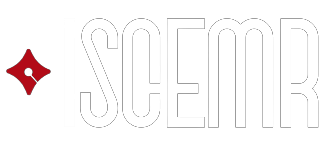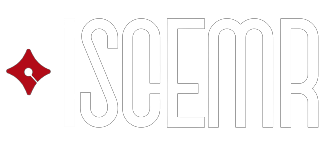Author Guidelines
All research papers submitted to the conference must adhere to the relevant writing rules and standards. Failure to comply will result in rejection by the conference Science Committee. Once the research papers are prepared according to the writing guidelines, they should be registered in the designated section on the official conference website and submitted. During submission, authors must indicate their preferred publication venue for the research paper.
After submitting the research through the conference website, authors can track its status through a personal profile. Status updates, such as acceptance, correction, or rejection, will be available on the website. If the research meets quality and writing standards, it will be marked as "Accepted." If minor technical corrections are required, the status will be "Correction." If the research fails to meet conference standards in terms of quality or topic, the status will be "Rejected." Accepted reports will receive an "Acceptance Letter" by the specified date. Authors with a "Correction" status must reapply by uploading a new file, replacing the previously submitted one after implementing the necessary corrections.
IMPORTANT NOTICE: INVESTIGATIONS NOT MEETING QUALITY AND WRITING STANDARDS WILL NOT BE ACCEPTED FOR THE CONFERENCE!
Peer Review Process
Research papers submitted to the conference must adhere to the specified topics, rules, and standards. The conference Science Committee reserves the right to reject submissions that do not meet these criteria. Submitted papers should be original, unpublished, and free from plagiarism. Authors are responsible for checking their research for plagiarism, as detected instances will lead to rejection, and subsequent submissions will be prohibited.
The evaluation of submitted research papers will be conducted by members of the conference Science Committee, supplemented by independent experts if necessary, using a blind review method. The final decision, based on evaluation reports, will be communicated to the author within 3-4 weeks.
Authors of corrected conference papers must reapply within one week, incorporating the necessary corrections. Failure to do so will result in rejection.
Academic Code of Ethics
The International Scientific Conference on Economics and Management places significant emphasis on academic ethics and combats plagiarism in publications. Unethical or plagiarized research will not be published. Plagiarism checks, using plagiarism detection software, are conducted before publication. Authors are encouraged to perform plagiarism checks before submission.
The Science and Organizing Committees guarantee the protection of freedom of expression and academic integrity, prioritizing academic quality over commercial interests. Authors of already published papers can make edits at any time, with reasonable explanations if required.
Authors confirm that their research has not been published elsewhere and each author has made a specific contribution. Proper citation of literature and databases is mandatory, and the accuracy of data must be guaranteed by the authors. Priority is given to the originality of ideas and the importance/relevance of research results. Confidential evaluation procedures are explained to both authors and reviewers. Rejected papers may not be resubmitted.
The Conference Committees conduct annual reviews of academic writing rules and research evaluation standards. New committee members should not overturn previous decisions unless there is an external complaint. The Conference ensures a properly coded expert opinion process that maintains anonymity between authors and reviewers.
All editorial rules and academic standards set by the Conference apply equally to published and unpublished (under review) texts. In the event of plagiarism, the Conference reserves the right to appeal to the relevant authorities, supporting the case with evidence (excluding reviewer identities).
The Conference commits to informing international databases and catalogues of withdrawals, with the timing of updates beyond its control. Conflict of interest situations follows COPE rules, with the Organizing Committee taking appropriate actions based on COPE guidelines (https://publicationethics.org/guidance

